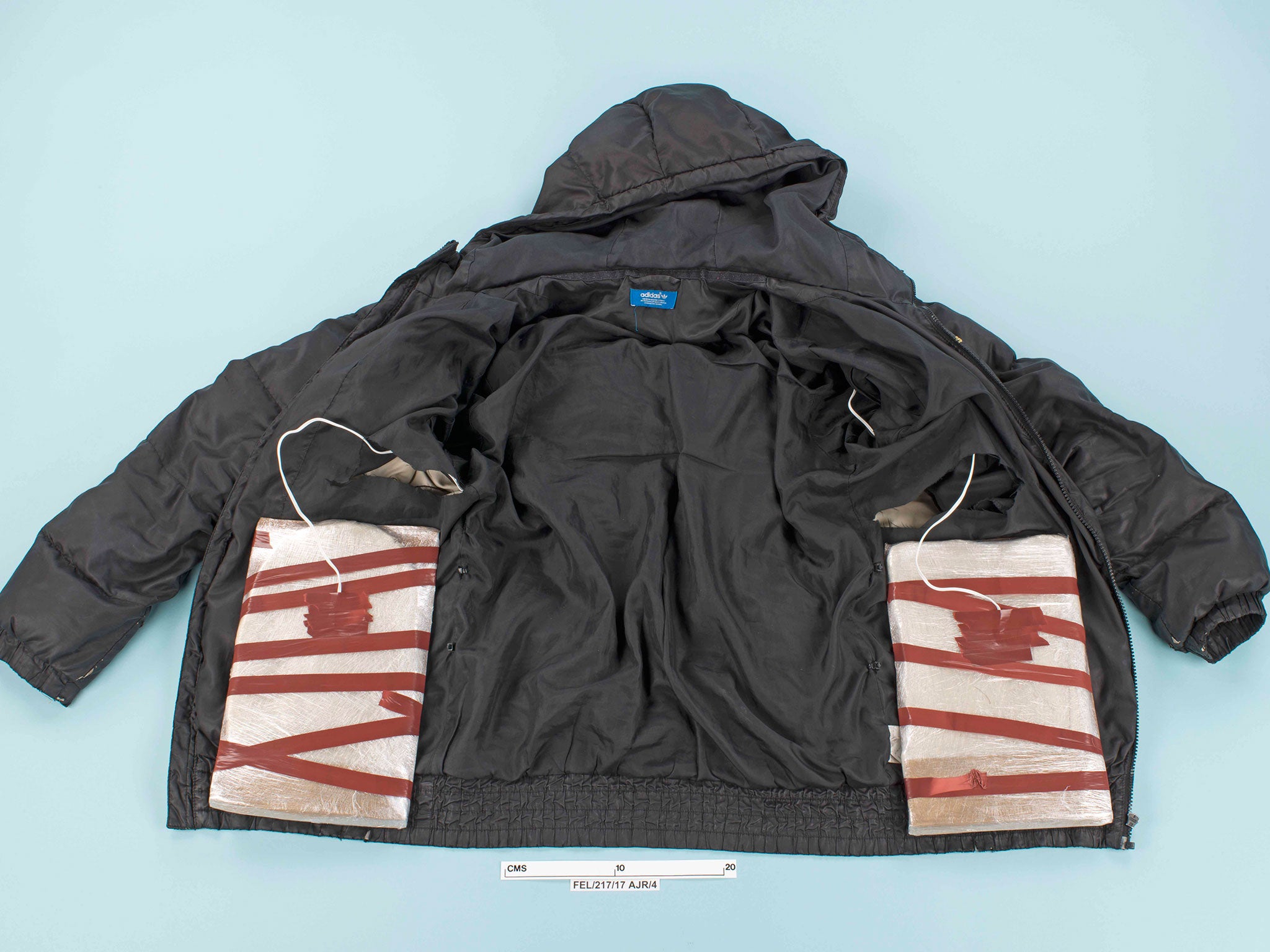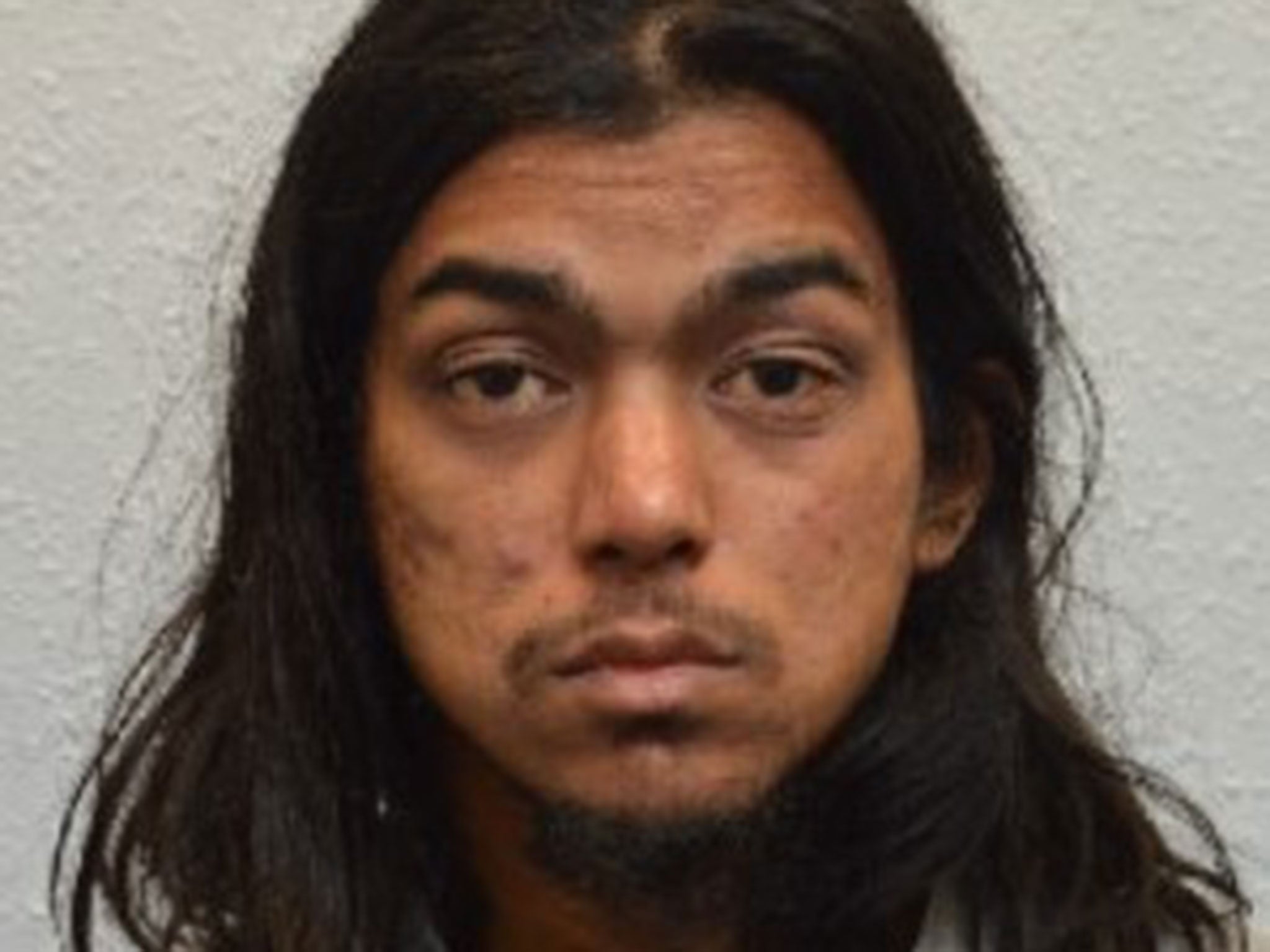Isis fanatic who tried to behead Theresa May and blow up Downing Street jailed for life
Naa’imur Zakariyah Rahman given fake bomb by security services ahead of suicide attack attempt
An Isis fanatic who plotted to bomb Downing Street and behead Theresa May has been jailed for life after unwittingly revealing his bloody intentions to spies.
Naa’imur Zakariyah Rahman was walking down a London road with what he believed was a pressure cooker bomb and a suicide vest when he was arrested in November.
Sentencing the 21-year-old to a minimum term of 30 years, Mr Justice Haddon-Cave said that although the devices were fakes provided by the security services, he planned to carry out a “major terror attack”.
The judge said Rahman hoped to kill as many police officers, bystanders and tourists as possible by detonating a bomb at the gates of Downing Street before storming the building to murder the prime minister with a knife and blow himself up.
“Rahman is a very dangerous individual and it is difficult to predict when, if ever, he will become deradicalised and no longer a danger to society,” the judge said.
“He planned and made detailed preparations for a major terrorist attack at the heart of executive government in this country and targeted the prime minister ... I have no doubt that he absolutely intended to use these items to carry out an imminent terror attack on Downing Street that he hoped would lead to his infamy and martyrdom.”
It is among 13 Islamist plots foiled since the Westminster attack in March 2017 and the UK’s terror threat level remains severe, meaning further attacks are considered highly likely.

Rahman was handed a minimum term of 30 years for the planned attack, and a further six years to be served consecutively for preparing terrorist acts by recording a video to help a friend join Isis in Libya.
The defendant, who appeared in court wearing a dark scull cap and with long hair and a beard, remained impassive in the dock during the lengthy hearing, at times stretching and putting his hands behind his head.
Rahman remained silent as he was sentenced, being watched from the public gallery by his sister, mother and her partner, and looked the judge and journalists in the eye as he was led away.
Repeating his words to other terrorists, including the Parsons Green bomber, Mr Justice Haddon-Cave told him: “You will have plenty of time to study the Quran in prison in the years to come...you have violated the Quran and Islam by your actions, as well as the law of all civilised people.
“It is hoped that you will come to realise this one day.”
The Old Bailey heard that Rahman intends to study for a degree in economics while in prison, as well as remain a practising Muslim.
His defence lawyer, Ali Bajwa QC, told the Old Bailey that there had been little risk of “actual harm” because Rahman had been the subject of an international undercover investigation for the duration of his planning.
He had unwittingly disclosed the details of his plot to three British and American agents posing as Isis “emirs” online, and was given a fake pressure cooker bomb, suicide vest and pepper spray by an undercover officer in London.

Mr Bajwa said Rahman “believed there were leaders guiding him on what he should be doing” and that although the attack plans were his own, conversations with the agents “narrowed his ideas”.
But Mr Justice Haddon-Cave rejected the arguments, saying law enforcement officers were “scrupulously careful not to overstep the mark”.
“It is not a case of entrapment or inducement to terrorism in any sense,” he added. “Rahman was both the instigator and author of his own course of conduct ... he believed the devices were capable of the most serious harm.”
An undercover officer known as Shaq told the would-be attacker that the pressure cooker bomb would case a similar level of damage to the Isis-inspired Manchester Arena attack, which Rahman praised after the deaths of 22 victims, and that the suicide vest had a blast radius of 10m.
While picking up the items – concealed in a holdall and jacket – on 28 November, Rahman said he would carry out the attack by the end of that week and when asked if he felt ready, replied: “Yeah. Do you know? Now I’ve seen everything it feels good.”
Armed police were stationed down the same road in Kensington and swarmed Rahman minutes later, when he told an officer: “I’m glad it’s over. I’m glad I’m arrested.”
The Old Bailey heard Rahman became “determined” to attack the UK after his uncle, an Isis member, was killed by a drone strike in Syria last June.

Mr Bajwa said he had been “brainwashed” by his uncle for more than two years, and a psychological report found that he was suffering from bereavement and depression at the time of his arrest.
He argued that Rahman was “immature”, lacked self-confidence and self-esteem, and the fact he was homeless and without means at the time made him vulnerable to outside influences.
His family had lived in the West Midlands until his mother moved them to London in what police said was an effort to lessen the influence of Rahman’s extremist uncles.
Two had previously been convicted for terrorist fundraising, and police said that as a teenager he was referred to the government’s Prevent counter-extremism scheme, but “disengaged” from the process.
Mr Justice Haddon-Cave used the failed intervention to aggravate his jail sentence, saying Rahman “deliberately misled officers seeking to assist him on the Channel [deradicalisation] programme and disengaged from it”.
Counter-terror police did not start investigating Rahman until he was arrested and had his phone seized in August 2017, on suspicion of sending indecent images to underage girls.
Investigation of the device revealed that he had received attack planning instructions from his uncle in Syria, triggering a terror investigation.
Following Rahman’s conviction last month, Metropolitan Police deputy assistant commissioner Dean Haydon, said the suspect was detained at the “appropriate time”.
“We maintained a covert operation to fully understand his aspirations, his intentions, and capability, which enabled us to control that risk,” he added.
Rahman was brought into contact with an FBI role player in early September 2017, who in turn introduced him to an MI5 and police operatives who pretended to support the plot while gathering intelligence on his movements and activities.
In one meeting with Shaq, Rahman was recorded saying he would get past Downing Street’s gates and make a “10-second sprint” for the door of No 10, with his main objective to “take her head off”.
He later carried out reconnaissance around Whitehall, prosecutors said, walking past the entrance to Downing Street and the site of the Westminster attack, at the gate of the Houses of Parliament in March 2017.
At the same time, Rahman was consuming propaganda from Isis, al-Qaeda, the Muslim Brotherhood and jihadi ideologue, while using the encrypted Telegram and Surespot messaging apps, websites and chatrooms to access Isis attack guides and speeches, and talk to fellow extremists. recent and repeated possession and accessing of extremist material.
He admitted helping friend and fellow extremist Mohammad Aqib Imran in his attempt to join Isis in Libya, by recording a video intended to be used after Rahman’s “martyrdom” to gain the group’s trust.
Mr Justice Haddon-Cave said Rahman played a “key role” in encouraging his co-defendant to journey to the war zone and may have facilitated the death of innocent people.
The judge said he had shown no remorse, even telling a probation officer that he would have carried out the attack if able.
“Rahman is a clever and cunning young man who possesses the patience, capacity and wherewithal to operate underneath the radar to dreadful effect,” concluded a report presented to the court.
“It may be that he never becomes deradicalised and that the longer he is incarcerated the more bitter he could become.”

